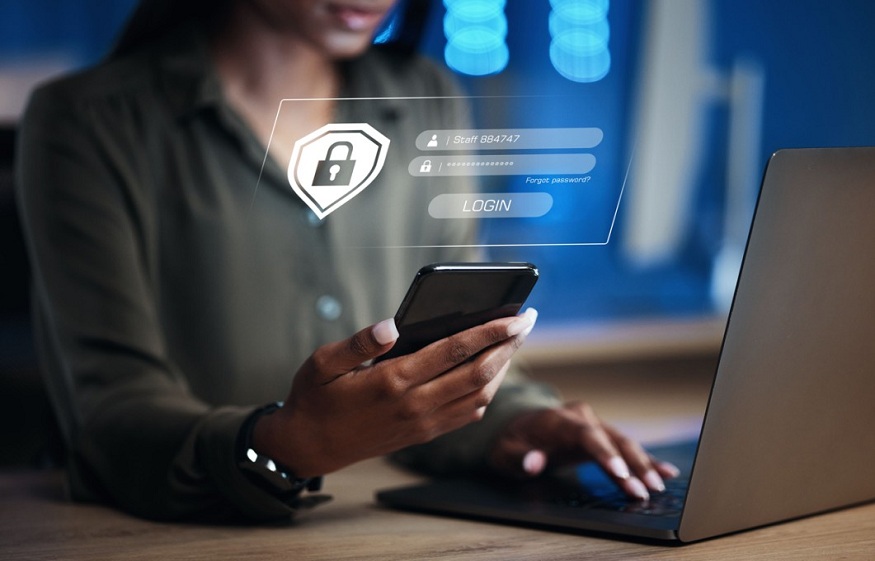Our mobile devices aren’t just for calling our loved ones. They’ve become data storage devices, audio and video recorders, and a quick way to order and access our bank accounts.
Mobile security is often overlooked by many users, who reject the reality of the risks induced by careless behavior towards the digital world.
Given their portability and myriad features, mobile devices are highly susceptible to cyber threats, including malware, spyware and phishing attempts that can compromise this valuable technology we keep in our pocket and all the information stored on it.
Malicious actors know that users often behave recklessly with their connected devices. If cybercriminals are savvy, compromising mobile devices can be financially rewarding, providing insight into the owner’s private and sensitive information.
Here are some essential preventative measures to help protect yourself and your devices against the most common mobile security threats.
An up-to-date system can protect your smartphone or tablet from vulnerabilities or flaws that can be exploited. If you don’t like automatic updates, keep an eye out for software update notifications and reminders that may appear on your screen and install patches manually as soon as you have time.
Delete unused apps from your device
Old, unused apps that are no longer up to date can hide serious security vulnerabilities that put the security of your device at risk.
Consider checking the App Library for any apps you no longer need. Cleaning up will make it easier to find your favorite apps and will help make your device more secure.
Backup your data
Today, memory cards for Android mobile devices offer a large storage capacity for your contacts, messages, files, videos, and photos. However, performing regular backups of your data is essential in case of theft or malicious compromise such as a ransomware attack.
Avoid smishing and phishing attacks
Like phishing, SMS attacks, also known as smishing, seek to trick recipients into accessing a malicious link via text message. Smishing attacks rely on social engineering tactics to trick recipients into handing over personal information or downloading malware onto the device.
Treat any unsolicited text messages with caution, especially those claiming to be from your bank and asking for personal or financial information.
When checking your email, be wary of unsolicited messages that seek to create a sense of urgency or induce panic.
Delete any unexpected messages received via SMS or email and do not reply to the sender.
Hang up or do not answer suspicious phone calls
Fraudsters and scammers may also call you on the phone. Like any good cybercriminal, the scammer will try to convince you that their offer is real or that the purpose of their call is legitimate. If you are asked for personally identifiable information, bank account numbers, PINs, or credit card numbers, hang up immediately. Intimidation or threats are another major red flag.
Avoid unsecured public WiFi networks
Public Wi-Fi networks are rarely secure, providing additional ways to compromise your device. So, despite the reduction in travel and vacations due to the health crisis, the risks of malicious interference have not disappeared.
Users who send sensitive information while connected to a public Wi-Fi network can face a number of threats, including theft of personal information such as login credentials and financial details. Additionally, cybercriminals can mimic a legitimate public Wi-Fi network, in a ploy called a man-in-the-middle attack. Users who connect to these malicious networks are exposed to data theft, malware infections, and financial misappropriation.
Security at home or on the go
Protecting against mobile threats doesn’t have to be a laborious process involving extensive security know-how.
A cybersecurity solution on your smartphone or tablet protects both your device from online threats and your personal information from cyber thieves.
Bitdefender Web Attack Prevention uses web filtering technology to ensure you don’t access malicious websites while browsing. Combined with anti-phishing protection and fraud filtering systems built into our security solution, you won’t have to worry about suspicious websites or scams.
Compatible with iOS (iPhone and iPad) and Android devices , Bitdefender Mobile Security will help you secure your data by providing comprehensive protection against mobile-specific threats, whether you’re at home, in your favorite coffee shop, or on vacation.
An added layer of privacy and security is provided by the built-in VPN that secures all your traffic on public networks and protects your online activity, banking or shopping, from prying eyes.

